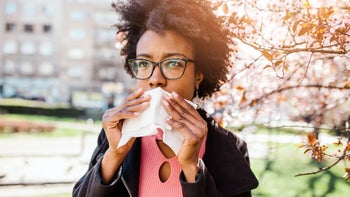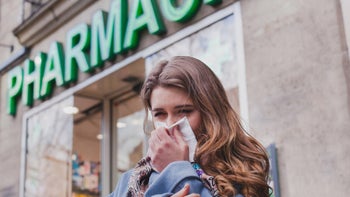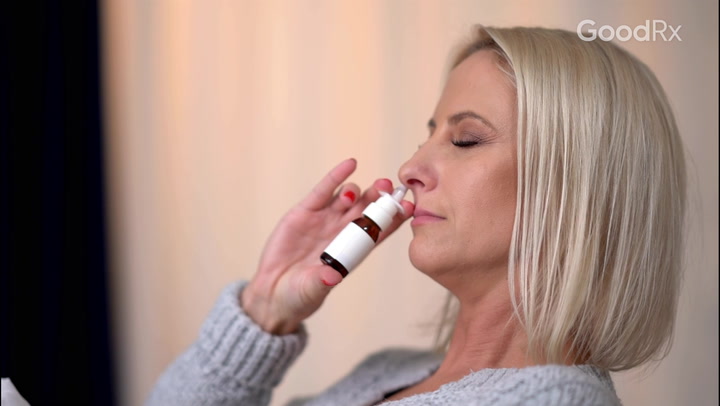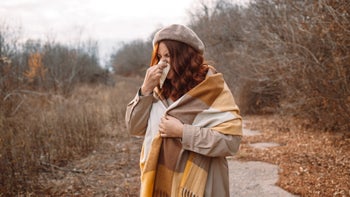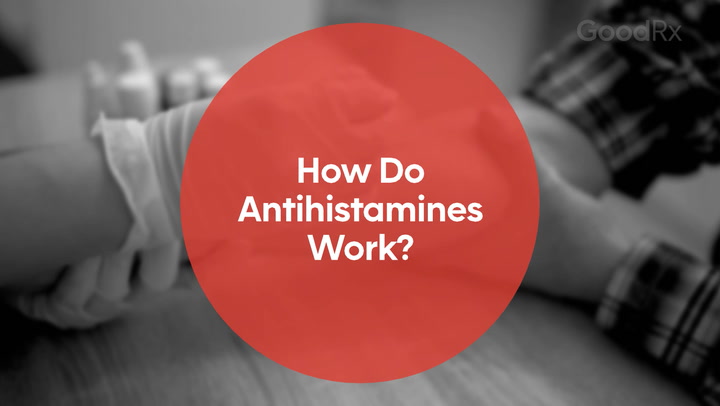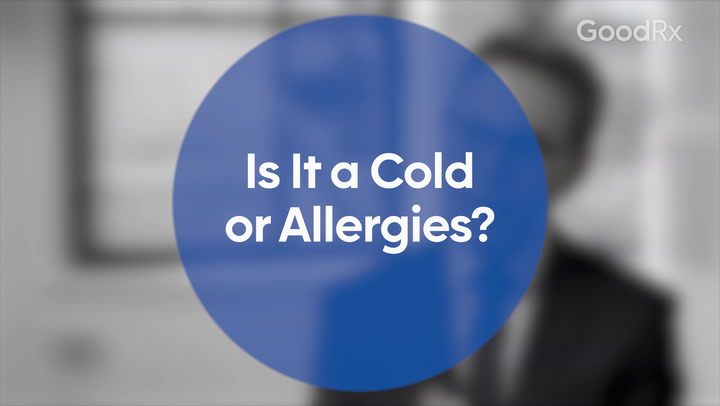
Can Allergies Make You Tired?
Key takeaways:
Seasonal allergies cause symptoms like sneezing, itchy and watery eyes, congestion, and fatigue.
Allergies can make you feel tired and rundown. They can also interfere with your sleep, causing drowsiness.
Treating seasonal allergies can improve your sleep and give you more energy. Treatments include intranasal steroids and antihistamines.
Table of contents

Seasonal allergies cause many different symptoms, including sneezing, congestion, and itchy eyes. But allergies can also make you feel tired and rundown. Let’s take a look at why allergies affect your energy and what you can do to improve allergy fatigue.
Can allergies make you tired?
Yes, allergies can make you feel tired. One small study found that more than 80% of people with seasonal allergies reported extreme fatigue and tiredness. Another study found that people with ragweed allergies reported increased fatigue as well as trouble concentrating and focusing during ragweed season.
There are a few reasons why allergies can make you feel tired. We discuss these in more detail below.
Histamine release
Your body releases histamine when you’re exposed to your allergens, like pollen or ragweed. Histamine helps your body respond to your allergens. But it also causes swelling in your nasal passages. This can affect your sleep quality if nasal congestion makes it harder for you to breathe at night.
Histamine release can also lead to sinus congestion and pressure. Sinus pressure can cause headaches and other uncomfortable symptoms. In studies, people reported feeling more fatigued when dealing with these symptoms. This was especially the case if they had a sinus infection on top of seasonal allergies.
Overactive immune system
During allergy season, your immune system is working overtime. Your immune system releases certain chemicals when it’s active, such as:
Interleukin-5 (IL-5)
Tumor necrosis factor (TNF) alpha
Need help choosing a nasal spray? Our pharmacy experts review the best over-the-counter nasal sprays for allergy relief.
All about antihistamines: Pharmacists list some of the most common antihistamines, a common group of allergy pills.
There’s no one-size-fits-all approach to seasonal allergies. One woman shares what she uses to manage her asthma and allergy symptoms.
High levels of these chemicals can make you feel tired.
Medications
Allergy medications can help relieve allergy symptoms. But some of these medications can cause side effects that affect your energy levels:
Diphenhydramine (Benadryl) can cause drowsiness.
Decongestants that contain pseudoephedrine can make it harder to fall and stay asleep, leading to increased daytime sleepiness.
What does allergy fatigue feel like?
Allergy fatigue may feel different for everyone. In general, most people experience a feeling of tiredness that doesn’t get better with sleep or rest. Other symptoms of allergy fatigue include:
A general lack of energy
Lower than normal energy
Feelings of sluggishness
Sleepiness
Lack of energy and sluggishness can make it harder for people to complete their activities or focus on tasks. People may describe this sensation as brain fog.
Seasonal allergies can also interrupt your sleep. That’s because the allergies cause inflammation and swelling in your nasal passages. This can lead to nasal congestion and trouble breathing during the night. Interrupted sleep can lead to daytime sleepiness, decreased energy, and brain fog too.
How do you get rid of allergy fatigue?
The best way to relieve your allergy symptoms is to stay away from your allergy triggers. But, in most cases, that’s not possible.
Thankfully, there are medications and natural remedies that can help treat seasonal allergies. Keeping your allergies under good control can lessen symptoms, including sleepiness, tiredness, and fatigue.
Medications for allergies
Medications that can help treat allergies include:
Oral antihistamines
Intranasal antihistamines
Intranasal steroids
Antihistamine eye drops
Mast cell stabilizers
Over-the-counter (OTC) decongestants can also help relieve symptoms quickly. But they’re not the best option for long-term treatment. Try to avoid Benadryl (diphenhydramine), which can cause drowsiness and dizziness.
Natural remedies for allergies
Natural remedies can also help with allergy fatigue. Here are some things you can try:
Eat more fruits, vegetables, lean proteins, and complex carbohydrates. These foods can help support your body as it fights against the allergens.
Drink more water. This will help you stay hydrated as your body fights off allergens.
Get light-to-moderate exercise. This can boost your immune system and reduce inflammation.
When should you seek medical care for fatigue and tiredness from allergies?
Talk to your healthcare team if your fatigue doesn’t get better with allergy medications. You may need other prescription treatments to get your symptoms under control.
Also, seek care if you’re still feeling tired but your other allergy symptoms (like congestion and sneezing) got better after starting allergy medication. There are many other medical conditions that can cause fatigue. Your healthcare team can check you for other conditions to see if they’re the reason for your fatigue.
The bottom line
Allergy fatigue is common and can significantly affect your day-to-day life. There are different reasons why allergies cause fatigue, including histamine release, sleep disruption, and side effects from medications used to treat the allergy symptoms. Treating your allergies can help ease allergy fatigue.
Why trust our experts?



References
American College of Allergy, Asthma & Immunology. (n.d.). Fatigue.
Chester, A. C. (2008). Chronic rhinosinusitis and fatigue: A common but underappreciated association. The American Journal of Medicine.
Cramer, B. (2000). Fatigue strong indicator of sinus infection. Vanderbilt University Medical Center.
Gentzler, D. (2011). Study shows allergies linked to fatigue. KSL.
Loy, B. D., et al. (2016). The effect of histamine on changes in mental energy and fatigue after a single bout of exercise. Physiology & Behavior.
Marshall, P. S., et. al. (2002). Effects of seasonal allergic rhinitis on fatigue levels and mood. Psychosomatic Medicine.
Northeast Allergy. (n.d.) How to fix allergy fatigue.
Tamm, S., et al. (2018). Evidence of fatigue, disordered sleep and peripheral inflammation, but not increased brain TSPO expression, in seasonal allergy: A [11C]PBR28 PET study. Brain, Behavior, and Immunity.


